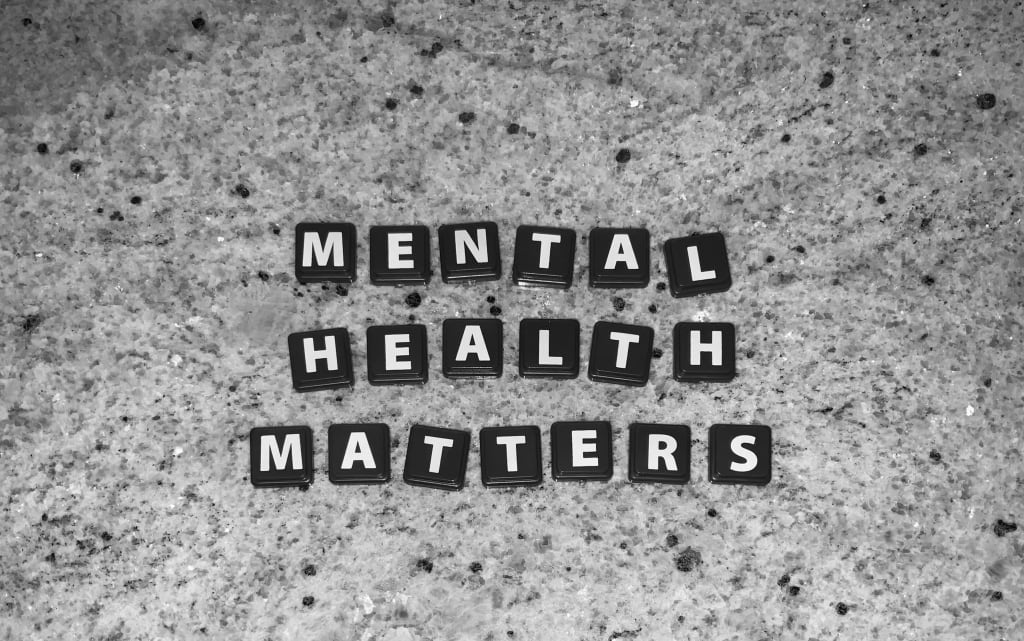You Won't Believe These Crazy Things That You Can Get Cheaper if You're Mentally Healthy!
Mental health is a big deal, and it's not something that should be taken lightly

Mental health is a big deal, and it's not something that should be taken lightly. If you have a mental illness, it can affect every aspect of your life, from your relationships to your career and beyond. Luckily, there are a number of ways to get help if you suspect that you have an issue. But did you know that some healthcare providers offer lower rates for people who are mentally healthy? Finding out about these programs can make all the difference when it comes time to seek treatment. Here are nine things only people who live with their mental health disorders might know about mental health treatment:
Uh...
Crazy Things That You Can Get Cheaper if You're Mentally Healthy!
You might have heard that mental health is important. But did you know that it's also expensive? If you've ever looked into getting some help with your mental health, then there are a few things you might be surprised to learn:
- Mental Health Services Are Expensive
To be clear, this isn't just about therapy. In fact, therapy can actually be quite affordable compared to other forms of treatment (and sometimes free). The problem is the lack of access—and it's not just an issue for those living in rural areas either; even people living in big cities may struggle to find quality care near their homes or work.
Telehealth
Telehealth is one of the most affordable healthcare services out there, and it's definitely worth considering. If you're looking for a way to save money on your healthcare needs, telehealth is a great option.
Telehealth allows you to connect with doctors through live video streaming or text messaging—meaning that instead of physically seeing them in person, your doctor may be treating you from another location. Telehealth can be especially useful if you are managing chronic conditions or have other limitations that make traditional face-to-face appointments difficult or impossible.
Telehealth has many advantages over traditional in-person doctor visits:
- It's much more cost-effective than visiting an actual medical professional (especially if their office is far away). Most of these services charge around $50-$100 per session; some even waive some costs altogether depending on your insurance plan!
Appointments with therapists and counselors
If you're in need of therapy, or have been for a while, it's important to find a therapist that you can trust. When searching for someone who will help you through life's challenges and help make sense of your emotions, it is crucial to ensure that they are the right fit for you. A good way to do this is by asking around if anyone has any recommendations or referrals. You can also check with your primary care physician who might be able to point out suitable candidates in the area where they work. If after doing these things, nothing seems right then try something else: go with your gut instinct!
Another option is checking out online reviews from different websites such as Yelp! These are usually very honest and accurate portrayals of what people think about each service provider’s performance; however there may be some negativity due to personal opinions rather than actual experiences which could skew the results slightly so keep this in mind when viewing them first-hand yourself before deciding whether or not these should influence whether someone receives their services from one particular organization over another one (which might have better reviews).
It’s also important that mental health professionals charge for their services because without compensation most people would not be able to afford them since no one wants money wasted during sessions wherein nothing substantial gets accomplished except maybe some minor insights here and there along with other small details like those mentioned above - which are actually more beneficial than harmful because these types tend towards being distractions rather than constructive feedback given by professional psychologists themselves during conversations held between clientele members at times when everyone involved agrees unanimously against having specific topics discussed within earshot range (especially outside ones).
Peer support groups
Peer support groups are a great way to talk to people who understand what you are going through. They can offer advice, encouragement and understanding when it comes to your mental health, as well as teach you how to manage your own health.
There are many different types of peer support groups that may be right for you:
- Mental health support groups - these are organized by professionals, but anyone can attend them at no cost (or very little)
- Support group meetings - these meetings are often free or extremely low-cost and led by individuals with personal experience in the topic area they are discussing
Companionship
Companionship. You are not alone, and you can make friends with anyone. Whether it be your family, friends or colleagues, or even pets who are there for you when things get tough. Companionship is important for mental health, as it helps combat isolation and loneliness which can lead to depression and anxiety disorders. But did you know that companionship doesn't just have to come from people? It can also come in the form of a therapist or counselor (if you're in therapy right now), a peer support group (such as Alcoholics Anonymous), or even a pet!

Access to nature, namely parks and green spaces
Another benefit of being mentally healthy is your ability to access nature, namely parks and green spaces.
You've probably heard that the benefits of being outside are many. But have you ever heard of the "Green Space Paradox"? In short, it's a paradox because while many people feel they need to be in a park or green space for hours each day to get their dose of nature, studies show that actually only spending 5 minutes per day outside can make an impact on your mental health!
The importance of being in nature cannot be understated: when we're surrounded by buildings and concrete all day long, our brains tend to get bored and stressed out. When we're exposed to natural elements such as trees, plants, flowers and even water—all things which inspire us visually—we start thinking in new ways. Our creativity increases because our minds aren't focused on mundane tasks anymore; instead they're focused on more abstract concepts (like how beautiful this flower smells). Additionally there's just something about seeing blossoms growing from tree branches that makes us feel optimistic about life—which is why research shows that getting outdoors improves moods overall!
Animal therapy
- Animal therapy: If you suffer from anxiety or stress, animal therapy can be an incredibly powerful tool. Many studies have shown that interacting with animals can reduce symptoms of depression, anxiety and PTSD.
- How to find an animal therapist in your area: While there aren't many statistics on the prevalence of pet-ownership among people with mental health conditions, it's likely that many people who need help are not able to afford it. In addition to traditional counseling or psychotherapy sessions, there are a number of organizations that offer free or low-cost services for those who need them—including mental health specialists who provide pet therapy!
Health insurance (sometimes)
So you're probably aware that health insurance companies aren't always the most understanding of institutions, but things are changing. As of 2018, many insurance companies now cover mental health services. This is good news for anyone who wants to get the help they need but can't afford it. However, it's important to note that each policy is different so you'll want to check with your specific plan before making any appointments with a therapist or doctor.
If you don't have health insurance at all (or if yours doesn't cover mental healthcare), there are affordable options available! If you're living in New York City and make under $50k per year, there are plenty of places where you can go without breaking the bank: The Center For Family Health offers sliding scale fees based on your income; Callen-Lorde Community Health Center offers free care at select locations; and Stonewall Medical Practice provides primary care at no cost for those aged 19-29 years old.
Housing assistance
- Housing assistance is a commonly overlooked resource for those who want help with housing.
- Housing assistance can help you find a place to live. This can be through programs that provide temporary shelter, including emergency shelters and transitional housing. If you're looking for more permanent housing, the program may offer direct rental subsidies or grants that will help you pay part of your rent each month.
- Housing assistance can keep you in your home if you're at risk of losing it because of financial hardship or other factors such as disabilities or healthcare needs, which increases the likelihood of homelessness (source). It does this by providing low-cost mortgage payments, modifying properties so they're accessible for people with disabilities and paying mortgages directly when homeowners are unable to keep up with their payments due to medical issues like cancer treatment (source).
For example: An elderly woman named Jeanette has just been diagnosed with breast cancer and has been given six months left until she dies from metastasis; she'll need chemotherapy treatments every day throughout this process which means she won't be able to work anymore - her social security benefits aren't enough for her mortgage payments either so now what happens? Luckily there's an organization called Habitat For Humanity International who will provide funds directly towards Jeanette's house via "Mortgage Protection Program" which helps offset costs while keeping someone living inside their own home rather than having nowhere else left but streets."
There are a lot of options for mental health services, but you have to know where to look
It's a fact that you can't afford to be mentally unhealthy. But if you are, there are still plenty of ways to make sure that your mental health doesn't break the bank. The following blog is dedicated to helping everyone find affordable mental health services and support options.
Conclusion
If you're looking for mental health services, there are many options out there. You just have to know where to look and what your insurance covers. A lot of this information is available at your local public library or online at their website. If you need help accessing these resources, talk with someone who knows about them already like an employee at the library - they might be able to direct you towards other resources as well!
PS: Hi! I am a freelance writer with a passion for writing. I am open to most genres, but my primary expertise is in content and blog writing. If you would like to discuss any upcoming projects please feel free to contact me by email at [email protected]
About the Creator
Courtanae Heslop
Courtanae Heslop is a multi-genre writer and business owner.






Comments
There are no comments for this story
Be the first to respond and start the conversation.